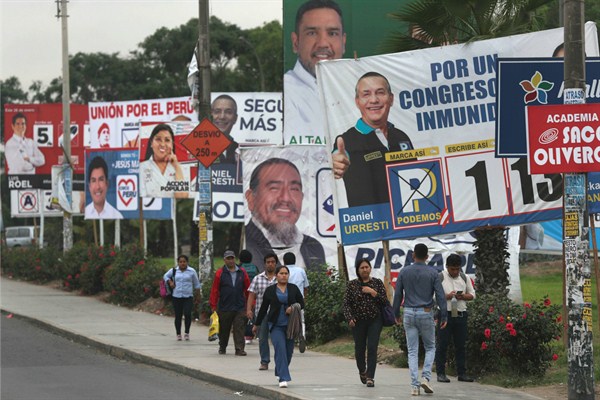LIMA, Peru—When Martin Vizcarra stepped up from the vice presidency to replace the disgraced Pedro Pablo Kuczynski as president of Peru in March 2018, the odds appeared stacked against him.
An austere, accidental leader whose tiny political party, Peruvians for Change, controlled a fast-disintegrating congressional bloc, Vizcarra immediately came under heavy fire from the hard-right Popular Force party, led by Keiko Fujimori, which had seized on a bribery scandal to force Kuczynski to resign. After three months of attempting to appease the Fujimoristas—and seeing his approval ratings plummet—Vizcarra launched a make-or-break campaign against Peru’s rampant corruption, and by implication Popular Force, which then used its legislative majority to block most of the new president’s initiatives.
Now, less than two years later, the tables could not have turned more dramatically. In special legislative elections on Jan. 26, Popular Force was decimated. Its share of seats in Peru’s unicameral 130-member Congress fell from 73 to a projected 15. Two days later, a court in Lima ordered Fujimori to serve 15 months of pretrial detention while she is investigated for laundering illegal campaign donations from Odebrecht, the Brazilian construction giant whose bribery network has tainted many Latin American governments. Fujimori had previously served one year in pretrial detention, based on different evidence, but had been released by Peru’s constitutional court in November.

